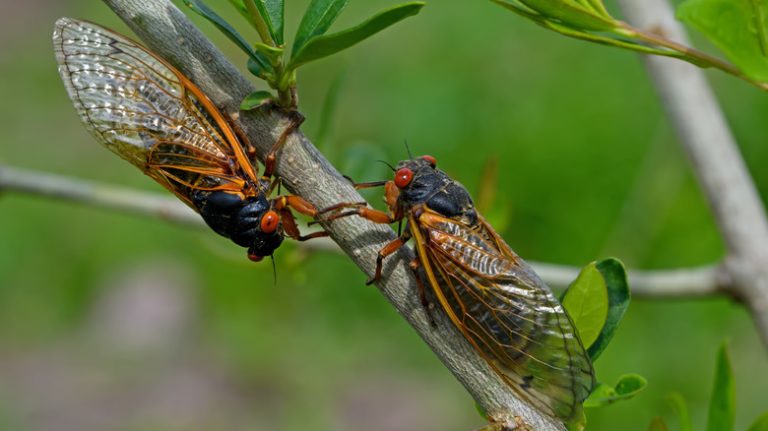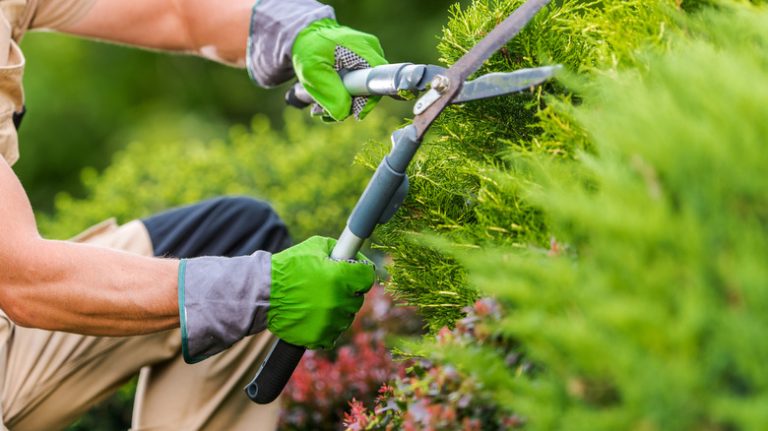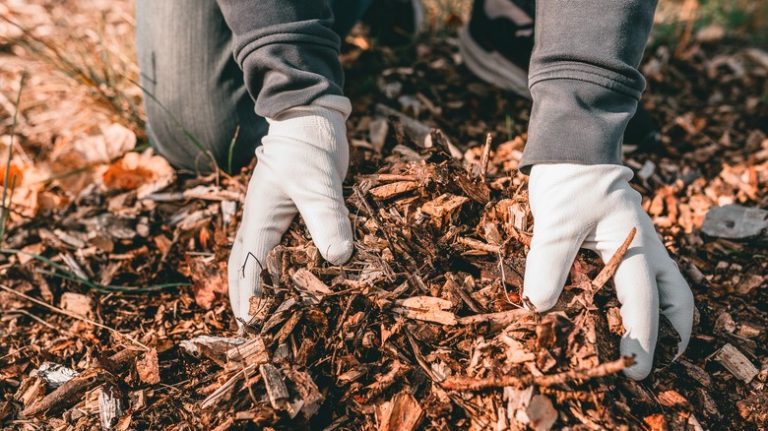Nothing says suburbia quite like a perfectly green manicured lawn adorned with a mixture of beautiful trees and thoughtfully shaped shrubs. However, achieving the ideal of having no bare spots on your lawn can be quite challenging — particularly underneath your shady trees.
The most common two reasons that grass struggles to grow under trees are not enough light and too little water. Grass thrives in partial shade to full sun, which means it needs between four to six hours of sunlight a day in order to properly photosynthesize. Even if light reaches the grass underneath the tree through the canopy, most of the nutrients is taken up by the leaves. As for water, the grass underneath trees competes for moisture with the tree roots. If your grass is not receiving enough water, it will look wilted, and the topsoil will appear dry.
Beyond looking aesthetically displeasing, bare soil can allow moss and algae to grow, which will compete with your grass for nutrients and hurt the long-term health of your lawn, so it is important to deal with it right away. To help fill out those pesky bare spots, here are two actionable steps you can take to make growing grass under your trees easier.
Increase sunlight by removing the lower sets of tree limbs
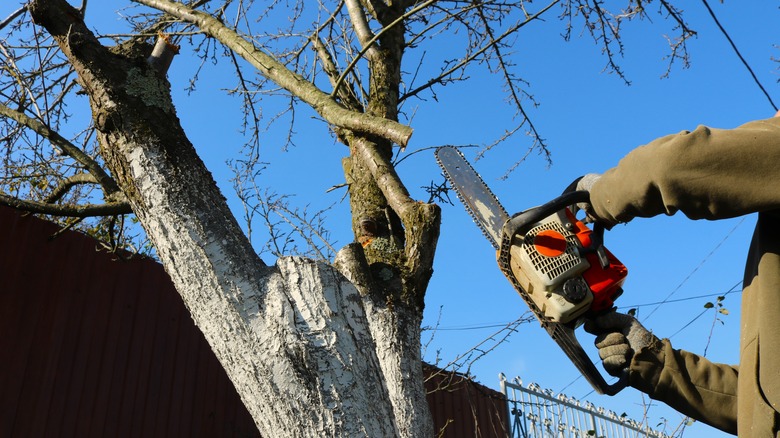
Properly pruning the bottom branches and inner branches of your tree will help sunlight reach the ground. Pruning is the process of removing certain limbs of the tree that are no longer needed for the overall health of the tree. When dealing with the bottom canopy of your tree specifically, the amount you prune will vary based on the tree species. For example, the University of New Hampshire states that for oak trees, you should trim the lower branches to a height of six feet.
It is recommended to hire a professional arborist who can selectively choose which branches to cut without negatively impacting the health of the overall tree. More trees are killed by bad pruning than by pests, so the cost might be worth your peace of mind and time in general. Keep in mind, that the tree limbs will grow back, so the limbs must regularly be trimmed and maintained. Mature trees should be pruned every three to five years, while younger trees should be trimmed every two to three years. The best time of year to prune your trees will vary based on the tree species. Long story short, pruning your trees won’t just help your lawn — it’s good for the trees, too.
Choose a shade-tolerant grass seed at your local garden store
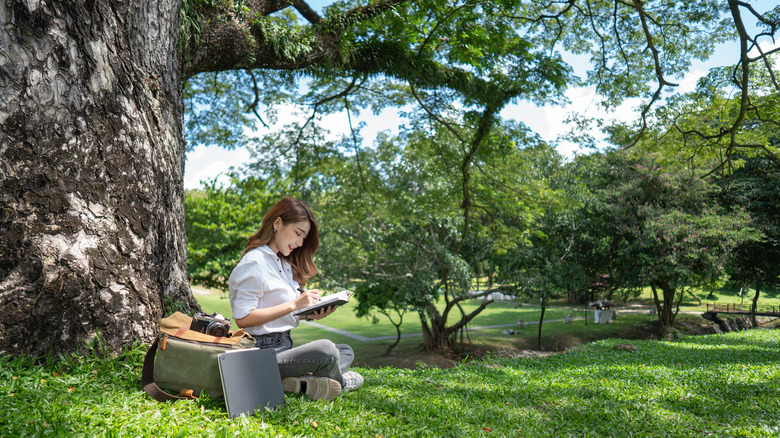
Trees provide a natural canopy, so the surrounding areas of your lawn will receive some shade throughout the day. To work with nature instead of against it, findings suggest to choose a shade-tolerant grass seed.
There are different types of grass seed available that adapt better to particular climates and conditions. Shade-tolerant grass seeds are for areas that receive less than four hours of sunlight each day which works great for areas with low light such as underneath trees. Your local garden store will likely have a variety that works best with your region’s climate, too.
After spreading the grass seed, water the space in the morning to avoid soil-borne disease which can spread from late afternoon irrigation. Further, make sure underneath the tree is cleared of leaves and debris, so the grass seed gets ample light and nutrients. Once the grass becomes established, it is recommended to mow the shaded grass at a slightly higher setting on your lawnmower to allow the grass blades to become stronger and established. Further, do not over-fertilize, which can disturb the overall health of your newly planted grass -– in general, shaded grass requires less fertilizer compared to grass that thrives in an open space.
If all else fails, and the grass under your trees continues to not flourish as hoped, mulch is a great fallback option. A four to six-inch layer is recommended.

